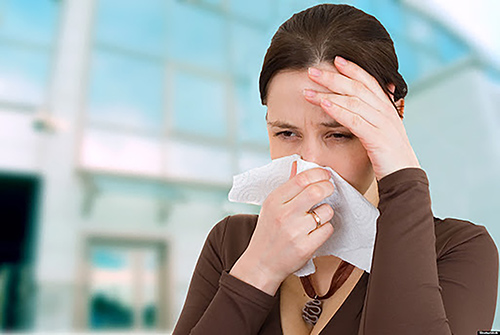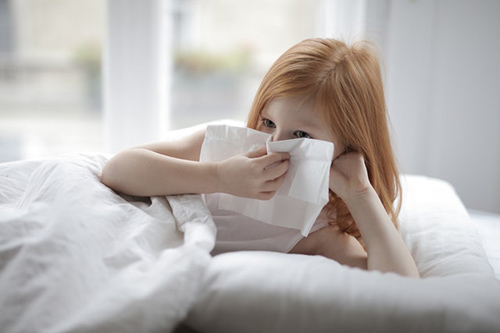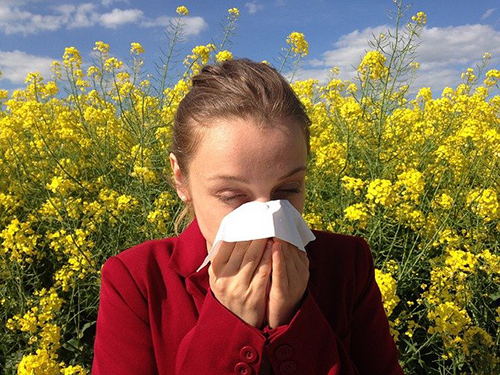How to prevent allergies? We live in a hostile environment, with enemies all around. However, these enemies are generally microbes or germs (bacteria, viruses, fungi, and others). They are ever on the offensive, awaiting an opportunity to invade your body through your skin, your lungs, or your intestinal wall.

The best way to answer how to prevent allergies is to diagnose the problem. To accurately diagnose an allergic condition or sensitivity to allergens, have a doctor obtain a comprehensive history of your allergy attacks, which will involve specific laboratory procedures. Once these studies are correlated, the doctor will try to discover the allergen triggering the allergic response.
Since an allergy is an inherited sensitivity to one or more allergens or an inherited capability of developing such a sensitivity, there is no real cure. Thus, there is no way to get rid of allergies forever without staying away from what brings on the symptoms. However, there are five ways to prevent or modify the allergic response.
Here Are Some Tips on How to Prevent Allergies:
Avoid the allergen: This is not always possible, but once an allergic person has learned what triggers his allergy attacks, avoiding the allergens makes common sense. Stay inside during certain times of the year when plants are blooming and producing pollen to which you are sensitive. If the pollen is in a specific locality, stay away from that area. If animal dander is the problem, avoid contact with animals to which you are sensitive.
You can use a cleaning mask to protect yourself against a dust allergy. Some people find that air conditioning units with good filters bring relief. However, if molds get into the filters, they can cause health issues.

Use antihistamines: An antihistamine can relieve the attack whenever the allergen to which you are sensitive causes a histamine release. Histamine attaches itself to specific receptors, bringing about the allergic response – the allergic symptoms. Antihistamines bind themselves to the same receptors that histamines attach to, but they do not bring about an allergic reaction.
Flooding the bloodstream with antihistamine molecules is an excellent answer to how to prevent allergies. Thus, the allergic reaction is averted. Unfortunately, many antihistamines cause drowsiness, making it unwise to drive an automobile or work around machinery when taking this medication type.
For most people, certain relatively new antihistamines that do not cause sedation are an excellent alternative to conventional allergy medications. Your physician can advise you which antihistamine would be best for your situation.
Topical sprays and inhalers: These are available by prescription only for allergic rhinitis and asthma and will likely need medical supervision. They prevent allergic reactions from developing. These agents, including corticosteroids, cromolyn sodium, and beta-adrenergic compounds, are not to be confused with over-the-counter decongestants.

Desensitization: This procedure requires a series of injections in gradually increasing doses of the allergen to which you are sensitive. This treatment allows your body to build up neutralizing antibodies, which may prevent allergies from pollen and other allergens. It will also make fewer IgE antibodies that provoke the allergic response available. While desensitization will not cure your hypersensitivity, it will alleviate seasonal allergy symptoms for a long time.
Large numbers of desensitizing allergens are available. If you are troubled with allergies, you should seek the advice of a physician who specializes in handling disorders for more information on how to stop an allergy attack using this particular therapy.
Hormone therapy: Oral and injectable corticosteroids are available for severe allergic reactions that cannot be controlled using antihistamines, topical sprays, or inhalers. Please utilize this therapy under the supervision of a physician.
How to Prevent Allergies: Food Allergies in Babies
DISCLAIMER: All content on this website is presented solely for educational and informational objectives. You should not rely on the information provided as a replacement for advice, diagnosis, or treatment from a qualified medical expert. If you are pregnant, nursing, or have any preexisting medical concerns, you should talk to your doctor before using any herbal or natural medicines.
REFERENCES
- Hardinge, Mervyn G., and Harold Shryock. “Family Medical Guide Volume II.” Ed. Marvin Moore and Bonnie Tyson-Fynn. Vol. II. Oshawa; Hagerstown; Washington D.C.: Pacific Press Publishing Association; Review and Herald Publishing Association, 1991. III vols. 388, 394, 396, 397.
- Dr. Axe: Offers a guide on natural allergy relief home remedies, including diet and supplement suggestions.
- American Academy of Allergy, Asthma & Immunology (AAAAI): Provides a wide range of resources, including tips for allergy management and treatment options.
- Asthma and Allergy Foundation of America (AAFA): Features educational information, support resources, and guidance on living with allergies and asthma.
